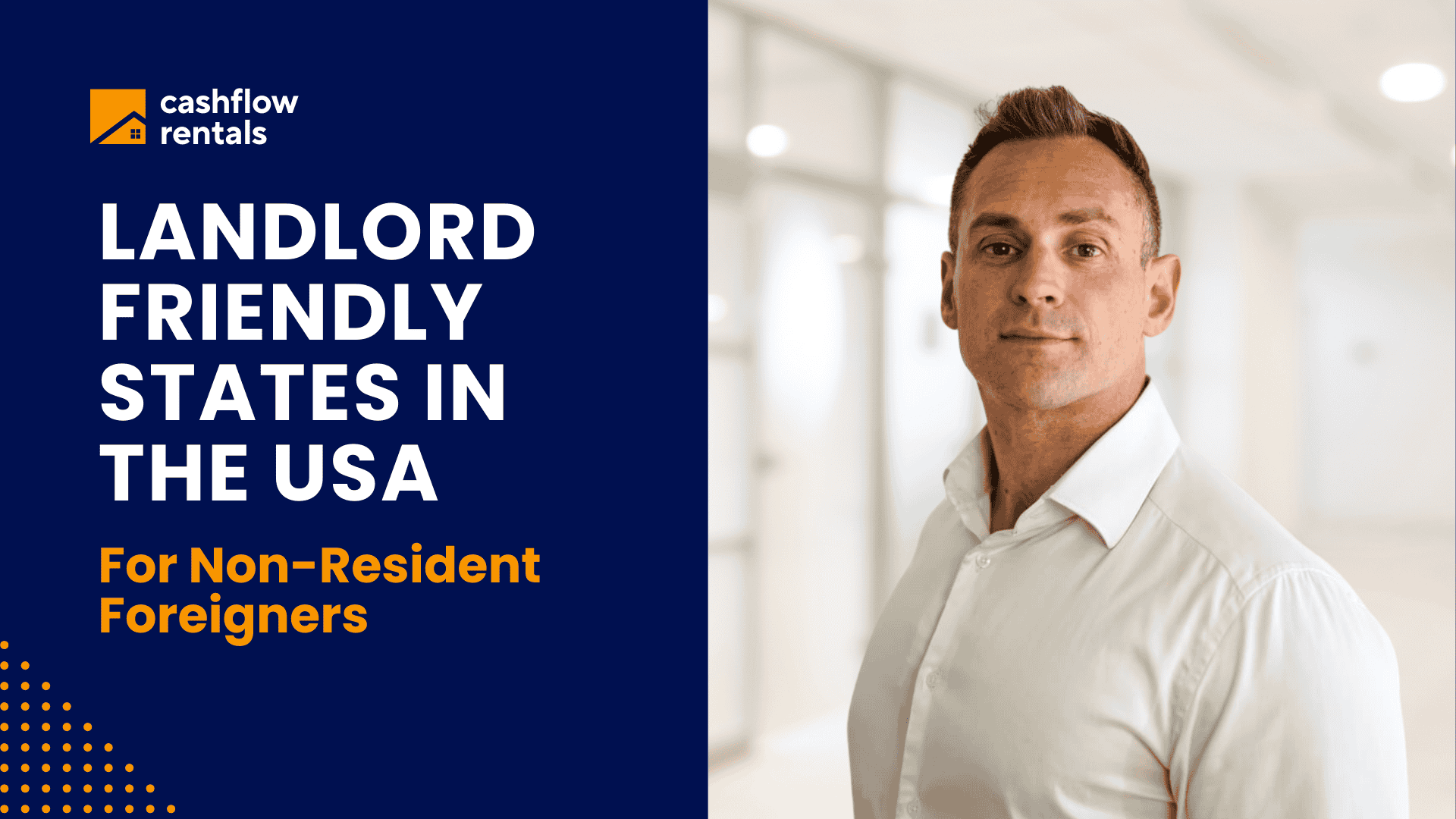Landlord Friendly Markets for Foreign Real Estate Investors
FREE DOWNLOAD: 10 Costly Mistakes Foreigners Make Buying U.S. Real Estate
When I first started buying rental properties in the USA from overseas, the very first thing I researched was tenant/landlord laws at the state level.
It became evident very quickly that some states take a regulation-light approach, while others take a very tenant-centric view, imposing restrictions on rents, particularly setting rent prices and collecting delinquencies, and also on your ability to evict problem tenants.
This simple research saved me from making costly mistakes that I’ve seen lots of other foreign investors make. While some US states have straightforward, cost-effective and expedient processes for dealing with issues like non-payment of rent and evictions, other markets make handling these fundamental issues difficult, expensive, and very long-winded.
View Investment Properties: Search US investment properties for sale tailored for Non-US residents
The Cost of Choosing Wrong
I’ve seen investors in places like New York City and California get caught up in the court system for literally years trying to take back possession of their properties from non-paying tenants who effectively became squatters.
For foreign investors, it’s even more important to ensure you’re buying US real estate in the right market. It can become extremely costly and time-consuming dealing with lengthy court proceedings to evict bad tenants.
Even in my own portfolio, I experienced significant issues post-COVID. In Pennsylvania, I had one tenant who paid just one month’s rent when they moved in, then stayed in the property for another 9 months without paying a penny. When I finally worked through the extended court process to get them out and take back the property, the tenant sued me for charging an $80 late fee. That cost me many thousands of dollars to defend!
Related: Navigating US Mortgage Rates for Foreign Investors
Key Legal Indicators of Landlord-Friendly Markets
I now look carefully at the eviction process before investing. What restrictions might be in place? What notices need to be posted? What’s the timeline for getting court dates? What’s the cost? I also get feedback from other investors about how local judges tend to rule on eviction cases.
In reality, it can come down to just having a very tenant-side judge in a particular county who consistently throws out evictions for any number of reasons, leaving you right back at square one, with a squatter living in your house for free.
Some specific criteria we evaluate include:
- Rent control policies (or preferably, lack thereof)
- Eviction costs and timeline
- Security deposit regulations
- Property rights protections
- Landlord licensing requirements
Related: How to Buy US Real Estate as a Foreigner – The Complete Essential Guide
Property Tax Impact on Investment Returns
Property taxes can have a real impact on your cashflow as a real estate investor. Some states and counties regularly reassess property value and adjust property taxes accordingly, while others take a more periodic approach.
In Cleveland, Ohio, for example, property taxes are some of the highest in the nation, and values are reassessed every 6 years. So at some point, you’re going to see a really big hike in taxes in one single year. If you fail to plan for that, you can end up owning a property that costs you money every month instead of a property that pays for itself and generates positive cashflow.
I’m already seeing some investors that bought in Ohio a year ago wiuth really thins margins now selling their rentals properties that just don’t cashflow since the property tax hike in 2024. Those investors coming into the market now are good for another 6 years, but it’s still important to make sure you plan for the next big uptick further down the line.
Related: The Essential Guide to US Taxes for Foreign Property Investors in 2025
My Shortlist of Landlord-Friendly States
I’ve developed a shortlist of states with landlord-friendly laws, and also a shortlist of states that have created a somewhat toxic and potentially financially devastating environment for real estate investors. I focus my own acquisitions only in 5 or 6 states, and there are others that are just not even worth considering.
- Ohio
- Missouri
- Alabama
- Georgia
- Tennessee
All of these states offer different advantages, but as a whole, they are pretty landlord-friendly.
For example, we buy investment properties in Kansas City, Missouri. There is no rent control, a relatively quick evictions process, no landlord licensing, and no implied warranty of habitability. All that said, it’s also important to check out the regulations at the county level as well.
In Ohio, the eviction process is simple and quick, and there are strong lease enforcement mechanisms, ensuring that the terms of the lease are legally binding and can be enforced.
Related: The Best US Property Markets for Foreign Investors in 2025
COVID Impact on Landlord-Tenant Laws
During COVID, there were justifiable restrictions on evictions. Unfortunately, there has also been a big hangover as some counties, even some specific judges, continue to make evictions difficult despite COVID being well in the rear-view mirror at this point. I feel like it can sometimes be a little political, and while I’m not a particularly political person, it is something to be aware of.
Beyond Legal Frameworks
When selecting markets, I also look for local real estate with inward migration at the neighborhood level, affordable house prices, and access to stable and growing jobs markets. As the US real estate market starts to stabilize, the best opportunities to capture cashflow and equity growth lie in the more affordable markets where American families are buying and renting.
That said, I never compromise on the legal protections. There’s no point chasing the potential for bigger returns if the downside includes the risk of huge legal fees and a property that produces no income while still being lived in. It’s just not worth the risk.
Related: Global Investors are Embracing Remote Real Estate Investing
Property Management Considerations
Solid and competent property management is crucial for overseas investors who aren’t local to the property. Unfortunately, I’ve seen more bad than good when it comes to property managers. Personally, I only work with very select local partners with their own rental properties who have in-house property management and in-house contractors who manage their own portfolios alongside other investors.
Verification Methods for Foreign Investors
By far the best option for foreign investors in US real estate is to work with partners that understand the local market, and do your research at the state and county level. A simple Google search for landlord-friendly states will tell you most of what you need to know, but working with experienced local partners who have skin in the game themselves is invaluable.
The lessons I’ve learned from building a portfolio of over 120 properties as a foreign investor have taught me that jurisdiction selection isn’t just one factor among many. It’s the foundation upon which all your other investment decisions should be built. Get this right, and you’ll avoid the costly mistakes that can turn what should be a profitable investment into a financial nightmare.
FREE DOWNLOAD: 10 Costly Mistakes Foreigners Make Buying U.S. Real Estate







![USA Property Investment for Foreign Buyers [2025 Guide]](https://cashflowrentals.net/wp-content/uploads/2025/07/USA-Property-Investment-for-Foreigners-Expert-2025-Guide-500x383.png)



